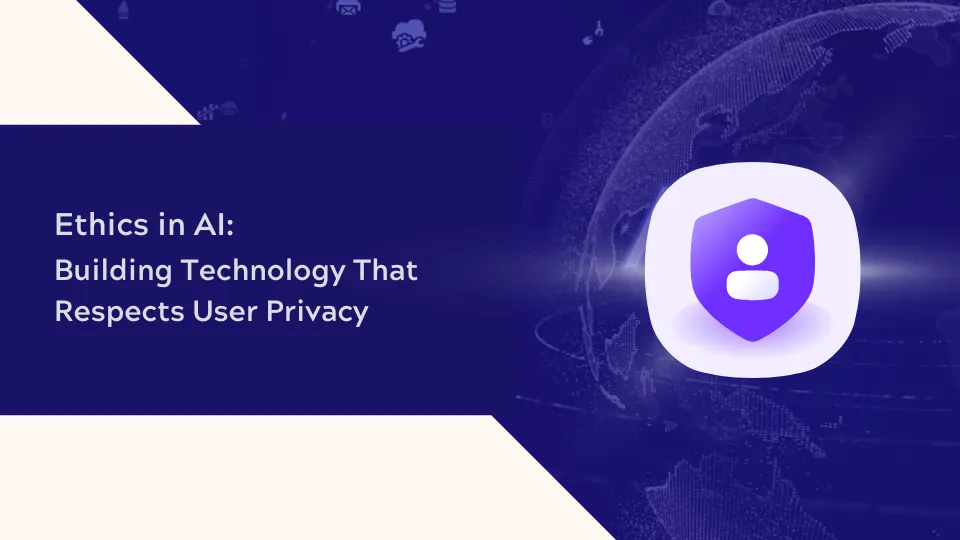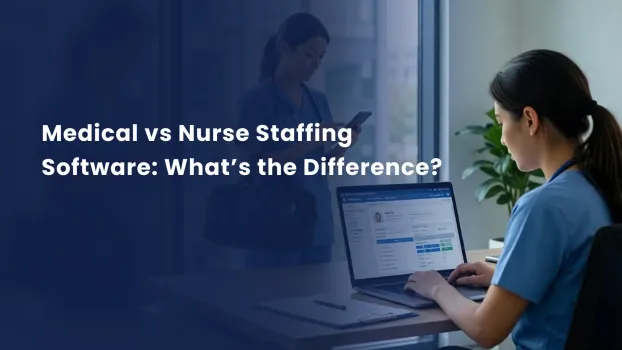Over time, AI has developed greatly; it has given various industries innovative opportunities and reshaped consumer experiences. However, with AI growing, certain concerns are rising as well, and they revolve majorly around whether AI is working according to ethics and whether it ensures privacy norms in particular.
AI can process large amounts of private data, which certainly raises alarms about how much one can rely on AI to get the most innovative and intelligent ideas while keeping privacy intact and risk-free.
The Rise of AI and the Ethical Dilemma
AI gives us incredibly large datasets, which comprise various information such as search history, purchase history, social media browsing, and much more. This certainly helps in a huge manner.
However, the massive volumes of sensitive data that AI is able to process present huge reservations about user privacy.
Core among the fears of privacy invasion and identity theft is the loss of individuality. AI systems tend to drive their models, facial recognition systems, and predictive analytics with the very data that would expose the users to risks they may not expect. Along the way, the range of imbalances in power that data collection engenders where organizations or governments control large amounts of personal information could lead to exploitative practices and abuses.
The Ethical Framework for AI
In light of this, developers and organizations must begin employing a moral decision-making framework which caters to privacy ideals, transparency, and accountability. The 2018 General Data Protection Regulation (GDPR) is a watershed moment in global data privacy- thus far, it intensifies individuals' rights over their data and regulates organizations' processing, storage, and collection of such data.
Among these are:
User consent: Personal data can only be collected and processed by AI systems with informed consent. The user must give explicit consent in a very clear manner understandable to him or her on which basis, he or she has to come upon the understanding that his or her data will be used, which includes with regard to access by education regarding all means through which the consent can be revoked later without the installation of fear.
Data Minimisation: Only the data necessary for particular purposes should be collected. The collection of excessive or unnecessary data exposes the user to avoidable risks. Developers should rather focus development on AI systems designed to achieve goals with minimal data.
Transparency and Explainability: At the same time, decision processes of AI systems should be transparent to the public, mainly where lives are involved and personal data will duly be processed, stored, and acted upon. The AI models must be inherently as clear as possible, and wherever it is practicable, the workings of the AI in arriving at its decisions should be able to be explained to the end user and how the AI arrived there or how their data will affect the outcome.
Security and Accountability: Intelligent systems must be armored for user data against breaches, theft, and unauthorized access. Dark design practices along with broken design arise where the user is clutched or forced within the associated ecology. Developers will have to operate and design ethically. This may also require regular audits, risk assessments, and regulatory safeguards regarding the use and handling of data.
Fairness-Biases: Developers will work proactively to root out such biases, ensuring that AI technologies are fair and non-discriminatory towards the user based on relevant characteristics such as race, gender, and socio-economic status.
Building AI Systems Respecting Privacy
How shall one guide the development of AI in light of ethical issues regarding AI and privacy? In other words, here are a few approaches to contriving AI systems that respect user privacy;
1. Privacy by Design
The term "privacy by design" refers to making privacy a part of the design and lifecycle of an AI system, right from its conception up till its deployment. That is, privacy must be baked in from the very beginning, engineered into the system as a design aspect, rather than treated as an afterthought. This could include data encryption for storage and transmission, ensuring data is assigned as anonymized as possible, and letting users choose what data they will share and how long.
2. Differential Privacy
Defining the scope of differential privacy poses a subtle challenge; it could be conceived as an advanced mathematical device allowing data to be examined and aggregated in a manner that would still guarantee privacy for individual users. This means that information of sufficient value and utility can be obtained from the dataset without referring to specific detail about any individual user. AI-enabled health analytics to find patterns and diseases within these populations will create data sets where inevitably no individual can be singled out.
3. Federated Learning
Federated learning basically means local training on the data, keeping the user's data on the user's device, and not sending it to a central server. The local device trains the model locally on its own data and sends only the model update to the central server. This ensures that personal data is never shared outside the device, vastly reducing the data breach threat.
4. User-Centric Control
AI developers must maximize a user's power over his or her data. Such provision should be made possible through the inclusion of clear, easy-to-use options for users that view, consider, or erase personal data. These data services, or eventually apps or services that use data, would also inform users about how their information is being used and which pieces of data they can opt out of collecting, without losing features of the service.
5. Regular Audits and Impact Assessments
There is a general consensus that regular privacy audits and impact assessments of AI systems should be integrated into the existing compliance landscape. These would provide assessments on two subjects: how such systems collect, process, and store data, and in which contexts if any, existing legal privacy requirements or ethical guidelines are violated.
The Road Ahead
User privacy maintenance is becoming more important than ever, owing to the accelerated evolution in AI technology. There is a collective need for developers, policymakers, and users to address ethical issues surrounding AI. With user privacy integrated into the very design of AI, fostering transparency, and adherence to ethical tenets will enable the construction of technologies that respect and protect users' privacy while continuing to unleash the incredible potential of AI.
In the end, technology must empower users, not forcibly exploit them. With almost a mythic approach to placing privacy at the heart of AI, we can work toward a future where people trust the systems they interact with, secure in their faith that their personal data is protected and autonomy upheld.


_thumb.webp)
_thumb.webp)















